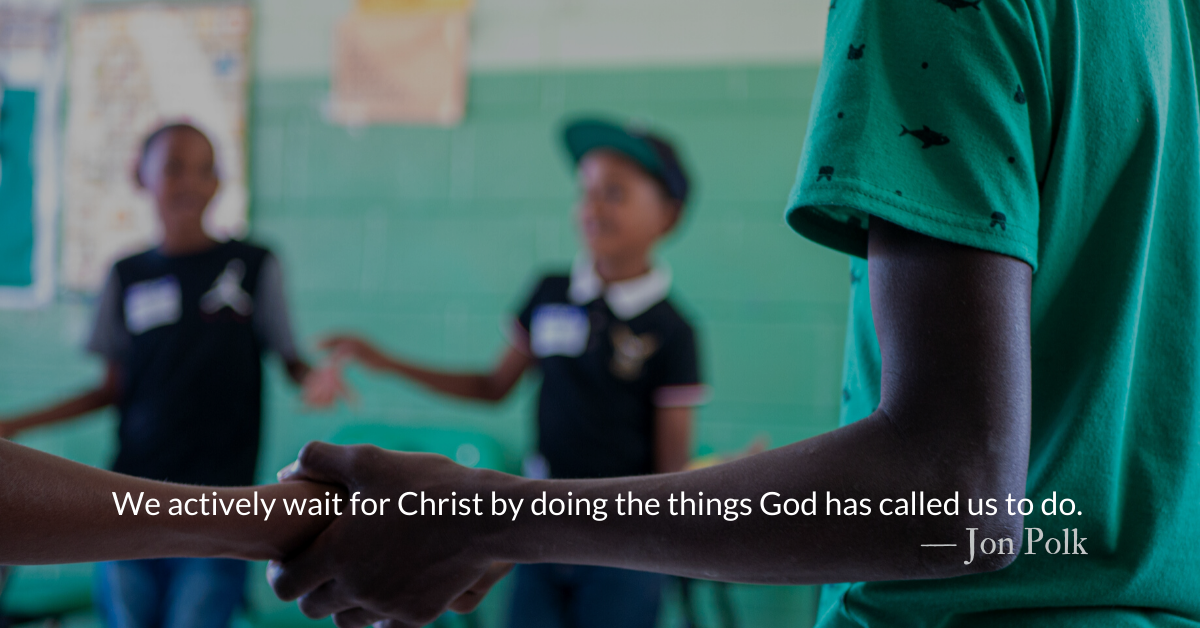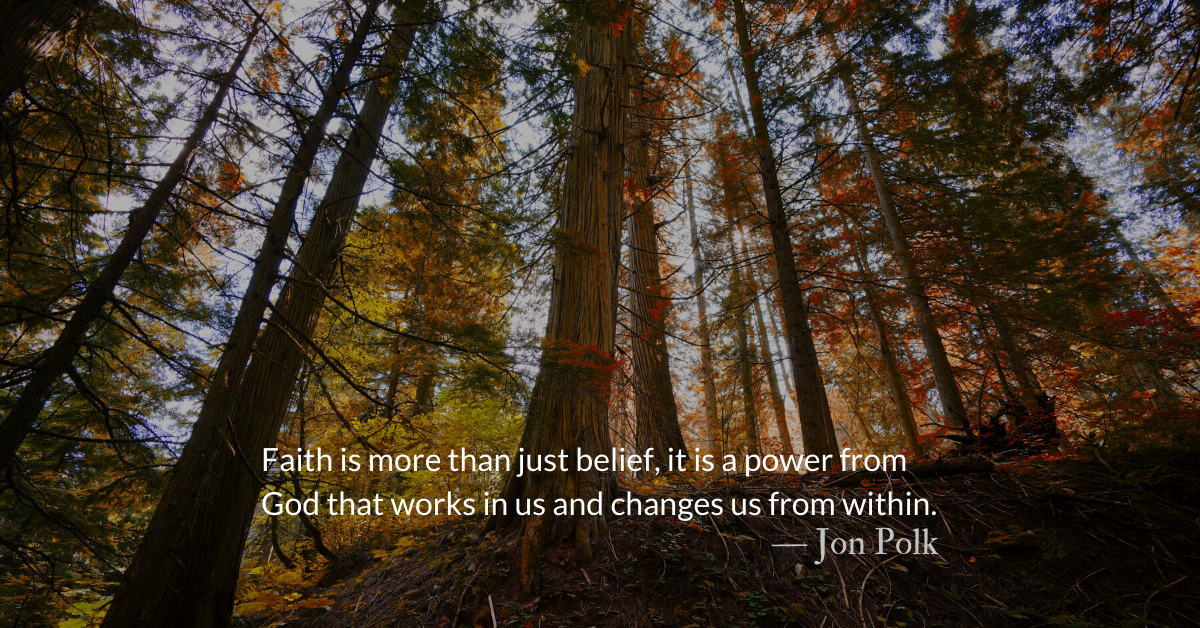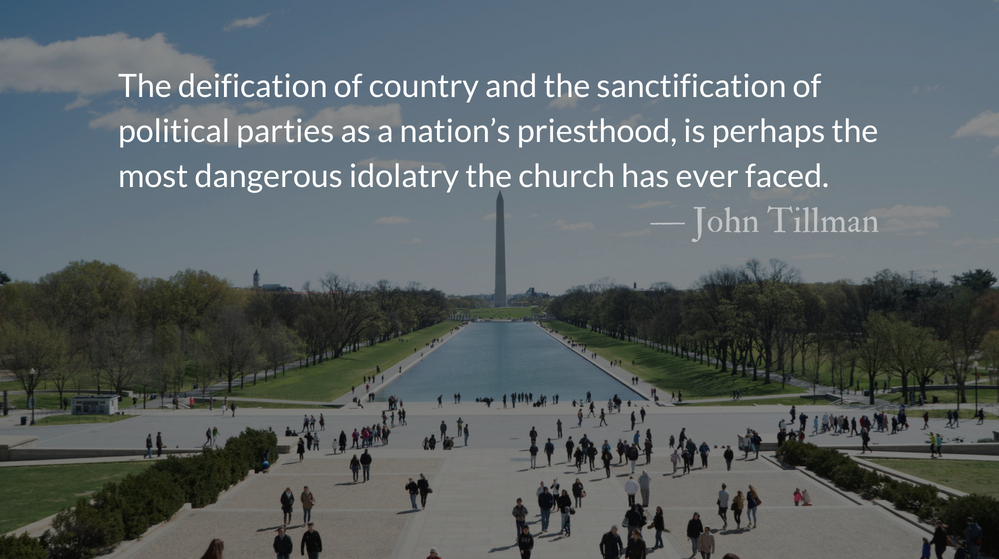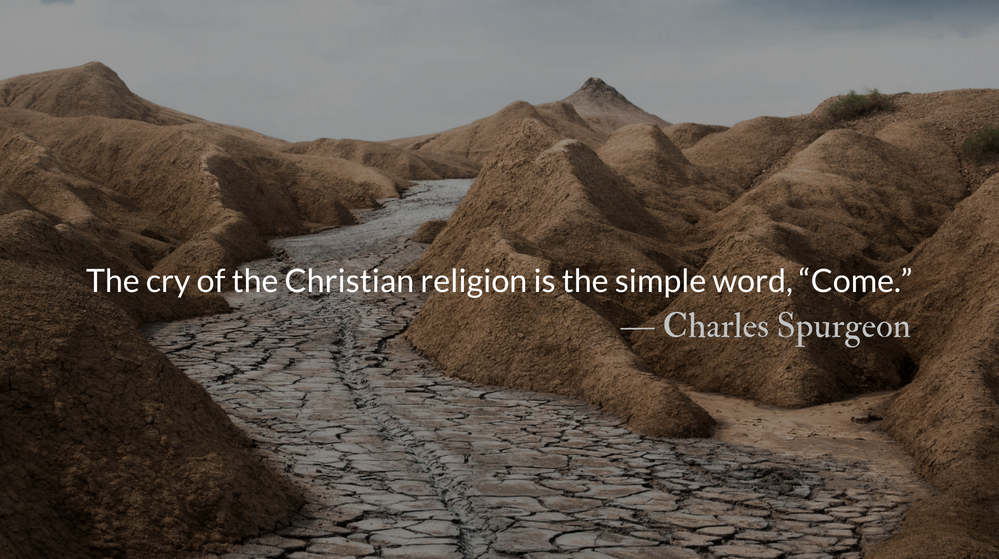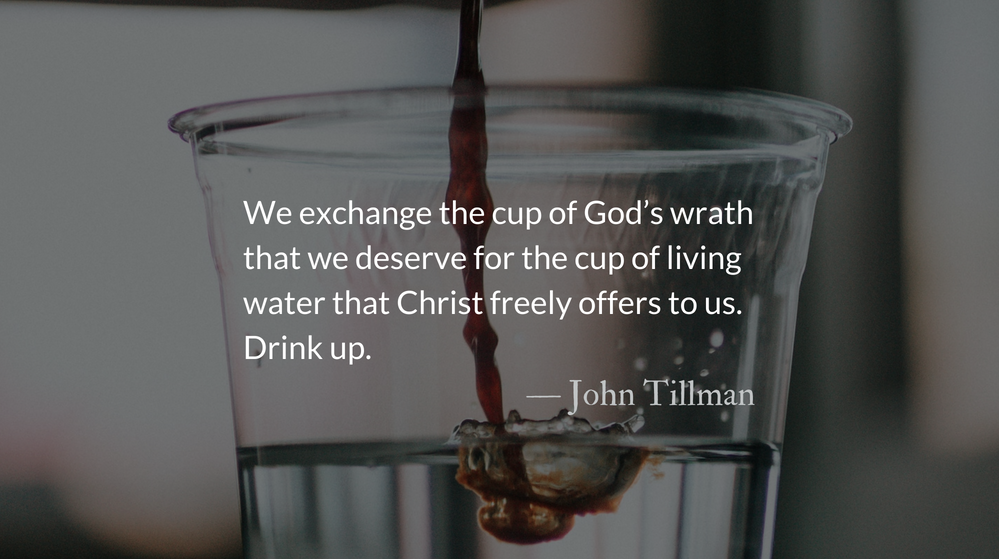*Advent is a wonderful time for new readers to join us. At this time of year, we are covering familiar biblical content and people are open to spiritual pursuits. Also at this time, people desperately need the balance of spiritual practice that The Park Forum provides. In this season, consider sharing our devotionals with others and inviting them to join our community. Use the sharing links before the scripture readings in the email below to help others subscribe.
Scripture Focus: Revelation 2.4
Yet I hold this against you: You have forsaken the love you had at first.
1 Thessalonians 1:3, 6, 9b-10a
We remember before our God and Father your work produced by faith, your labor prompted by love, and your endurance inspired by hope in our Lord Jesus Christ.
You became imitators of us and of the Lord, for you welcomed the message in the midst of severe suffering with the joy given by the Holy Spirit.
They tell how you turned to God from idols to serve the living and true God, and to wait for his Son from heaven…
From John: As we continue in John’s apocalyptic book of Revelation, which speaks in dreams and visions about Christ’s second Advent, we are excited to continue this short series of reflections by Jon Polk. They are based on his recent Advent sermon out of 1 Thessalonians. The Thessolonians were particularly concerned with questions of Christ’s Advent, and there are wonderful lessons here for us all. Come Lord Jesus.
Reflection: The Labor of Love :: Love of Advent
By Jon Polk
Introduction: Advent is the season in which we anticipate and wait for Jesus’ return by remembering his first coming. Paul’s letters to the Thessalonian church are filled with references to Christ’s second coming, encouraging the believers to be actively waiting as they fully expected that Jesus would come back in their lifetime. Paul commends their work of faith, labor of love and endurance of hope.
Love is the present and continuing relationship between God and his people through Christ, but how about this “labor of love” that Paul references? It is a phrase typically used to refer to something we do out of a deep passion, motivated by love for those involved. But love is so wonderful and light that to pair it with a word like labor seems almost incongruent. So why labor? In Paul’s description the labor in labor of love speaks in part to the ability to continue to follow God in the middle of struggle and persecution.
Certainly, persecution and suffering was common in the days of the early church, but what was happening to the believers in Thessalonica? It actually was partly the fault of Paul. In Acts 17, when the local Jews discovered Paul was there preaching and teaching, they ran him and his team out of the city. So if the other Jews didn’t like Paul, then certainly they were not too happy with all these ‘imitators’ of Paul also proclaiming the gospel message. Whether or not there was physical persecution, their suffering certainly started with social ostracization, conflicts with their Jewish friends and neighbors, and pressure from the Gentiles as well. Thessolonica was a multi-cultural port city and you just don’t go around in a pluralistic society proclaiming an exclusive one true God without people being offended.
But the believers were transformed by the labor of love within them. Their attitude towards their suffering had changed. Instead of complaints and laments, there was joy inspired by the Holy Spirit. Rejoicing through afflictions is a mark of the labor of love at work. As they actively waited for Jesus to return, they found joy in their suffering. We actively wait for Christ by doing the things God has called us to do because he loves us and will ultimately provide rescue and relief for us.
Actively waiting for the return of Jesus is supported by the labor of love. This Advent season, are you practicing the labor of love, enduring trials and difficulties with the confidence that God will see you through, and in so doing are you becoming an example to others? If not, what are you waiting for?
Divine Hours Prayer: The Refrain for the Morning Lesson
Blessed are they which do hunger and thirst after righteousness: for they shall be filled — Matthew 5.6
– From The Divine Hours: Prayers for Autumn and Wintertime by Phyllis Tickle.
Today’s Readings
2 Chronicles 11 (Listen -2:58)
Revelation 2 (Listen – 4:59)
Thank You, Donors!
Thanks to our donors, in 2019 we will publish approximately 100,000 words of free, and ad-free, devotional content. Without donor support, continuing this ministry would be impossible. As the end of the year approaches, consider whether the Holy Spirit might be prompting you to help support our 2020 content with an end-of-year gift or by becoming a monthly donor. Follow this link to our giving page.
Read more about Involving Christ :: Love of Advent
We carry the gift of involving Christ. Christ is lovingly interested in being involved in our embarrassments, difficulties, and failures.
Read more about The Value of Words
The value of words for Christians is vastly different than others, for our Savior is known as The Word made flesh.


